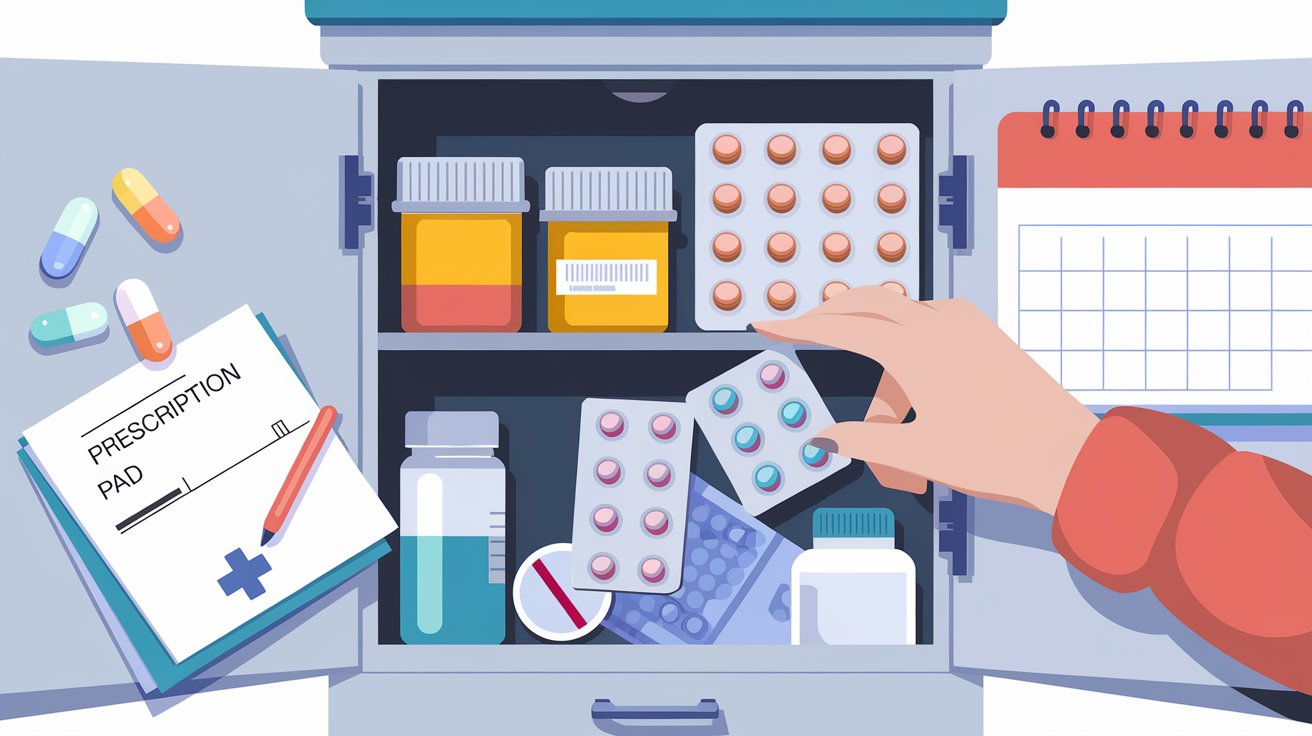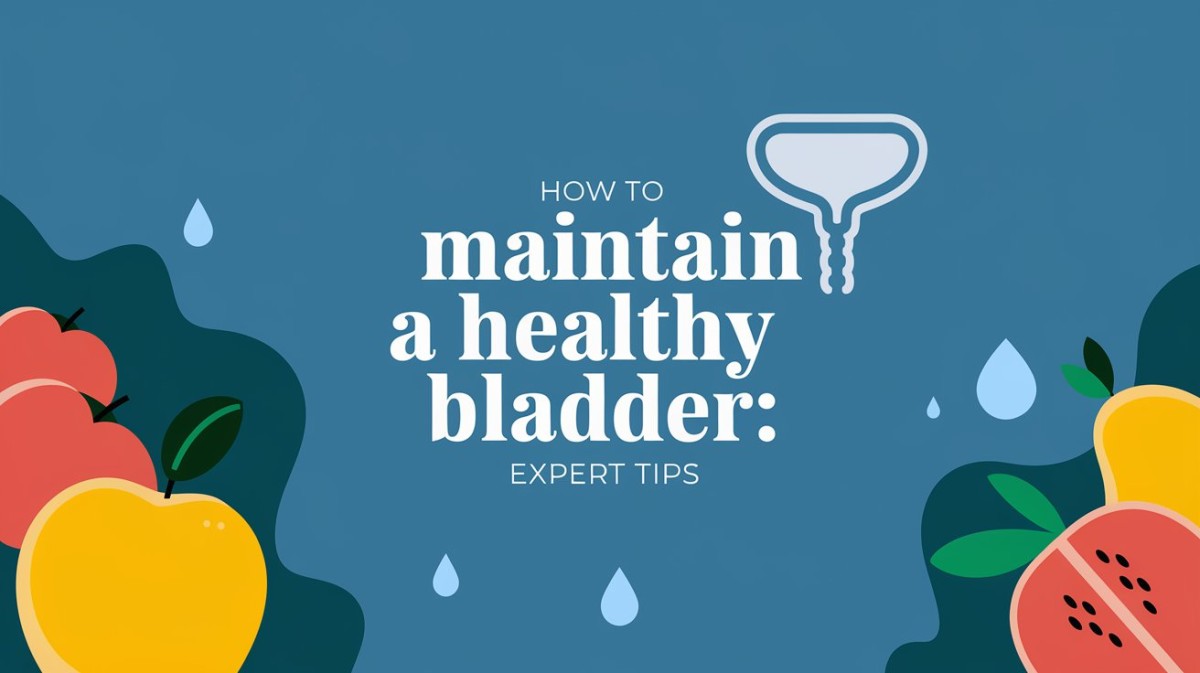Ever thought about how much your bladder is involved in supporting your health and regularity? Are you taking enough steps to keep it healthy? Bladder has an essential function of helping out the remaining toxins in the body and the regulation of body balance. However, failure in giving proper attention, might cause irritation or even other complications such as infection or incontinence. So, let us dive in and learn more on what you could do to keep your bladder healthy.
1. Stay Hydrated
The fundamental practice in maintaining good bladder health is taking adequate water. Patients should endeavor to drink 6-8 glasses of water daily to enable it to effectively eliminate toxins from the body. Urine accumulation in the bladder due to water loss may cause inflammation and infections of the organ.
Also read more on What Happens When You Drink Too Much Water? Everything You Need to Know About Water Intoxication.
Pro Tip:
Drinking water should be done in regulation, spread across the day. Do not take excessive water to drink as this places a lot of pressure on the bladder.
2. Maintain a Balanced Diet

There are foods and drinks that can positively or negatively impact bladder health.
❖ Include: Fructose containing foods (fruits, vegetables and whole grains) avoid constipation, which puts pressure on the bladder.
❖ Avoid: Don’t consume spicy foods, caffeine, alcohol – and acidic fruits if you notice irritation.
Did You Know?
Cranberries are acclaimed all over the world for their bladder health delicacies and can prevent UTIs.
3. Practice Good Bathroom Habits
❖ Don’t hold urine: Urinating frequently relieves pressure on the bladder and may decrease the chance of kidney infection.
❖ Wipe front to back: In women this assists in preventing the spread of bacteria through the urethra to the urinary system.
❖ Urinate after intercourse: This can cause the bacteria to be washed out and thus lowering the likelihood of anyone getting an infection.
Bonus Tip:
Stay away from stressing your bladder when you are urinating. Normal functions are achieved by strain-free bladder emptying.
4. Strengthen Pelvic Floor Muscles

❖ The exercises such as the Kegels assist in moving your bladder to prevent leakage.
❖ How to do them: Squeeze the muscles of your pelvic region and then release for 3 seconds.
❖ Benefits: Reduces the likelihood of producing urine involuntarily particularly among patients of limited age and women of child bearing.
5. Avoid Smoking
Tobacco contains chemicals that affect the bladder lining and smoking is one of the biggest risk factors for developing bladder cancer. Smoking can be bad for your bladder plus there are a lot of advantages to quitting this habit.
6. Manage Stress and Anxiety
Stress can cause asymptomatic over active bladder. Yoga and meditation can therefore be used to help the bladder to regulate since they cause the muscles to relax.
7. Maintain a Healthy Weight
Obesity strains a bladder, and women in particular, risk suffering from stress incontinence whenever they are overweight. A good exercise regimen and a healthy diet will not only assist the individual in maintaining a good weight and a healthy bladder.
8. Do Not Take Some Medications

Certain drugs like diuretics and antihistamine trigger changes regarding the bladder. Contact your doctor if you end up suffering from side effects derived from your bladder.
9. Regular Check-Ups
The patient should seek medical attention as soon as he or she experiences any of the symptoms of bladder problems. Infections, for instance, or the symptoms related to an overactive bladder are best diagnosed and prevented from aggravating when one pays a health care provider a routine visit.
10. Stay Aware of Signs of Trouble
Signs are mainly of frequency, paleness, pain, and the passage of blood, or they have those awful feelings of urgency. These may present symptoms as secondary to medical conditions such as UTIs, kidney stones or bacterial bladder infections.
Read more about Urinary Tract Infections (UTIs): Symptoms, Causes, and Treatments.
When to See A Doctor:
I would recommend an annual health checkup for every person especially for those who are 40 years or above.
The checkup should include:
❖ Routine blood tests CBC Liver function
❖ Kidney function
❖ Thyroid function
❖ Lipid profile
❖ Urine test
❖ HbA1C
Certain cancer screening blood tests like CA19.9, CEA, PSA (men) CA125(Women)
Along with that:
❖ Ultrasound Abdomen and Pelvis
❖ Chest xray
❖ ECG
❖ 2D Echo
❖ TMT
In any multispeciality hospital, all of these tasks can be completed in half a day and the going rate would be roughly Rs 6000.
Every five years, endoscopy and colonoscopy are performed to screen for colon, stomach, and esophageal cancer.
Women should get a mammogram every year; this test is typically covered under the comprehensive checkup package.
Owing to the sharp increase in cardiac illnesses, particularly in the younger population, I would also advise getting a CT coronary angiography once every five years to look for early heart blockages.
The most crucial elements of maintaining good health are eating a diet rich in vegetables and avoiding fried and sugary foods.
Constantly eat until 80% full. and not before you are able.
The American Heart Association suggests doing cardiac exercise five times a week, which includes two days of weight training, to raise your heart rate to 120 beats per minute.
For such more related content don't forget to check out our blogs on Treatments.
Conclusion
The health of the bladder ought to be kept well to ensure that there is body health. This means that by practicing the expert advise you have read today, that involves drinking much water, taking proper meals, proper bathroom habits and exercising much, your bladder will be healthy. Surgery and dramatic dieting is not the only way to live healthier, even small alterations in your habits will help you become a better person for a lifetime. Start practising today in order to keep your bladder ‘in shape’ for the future.

